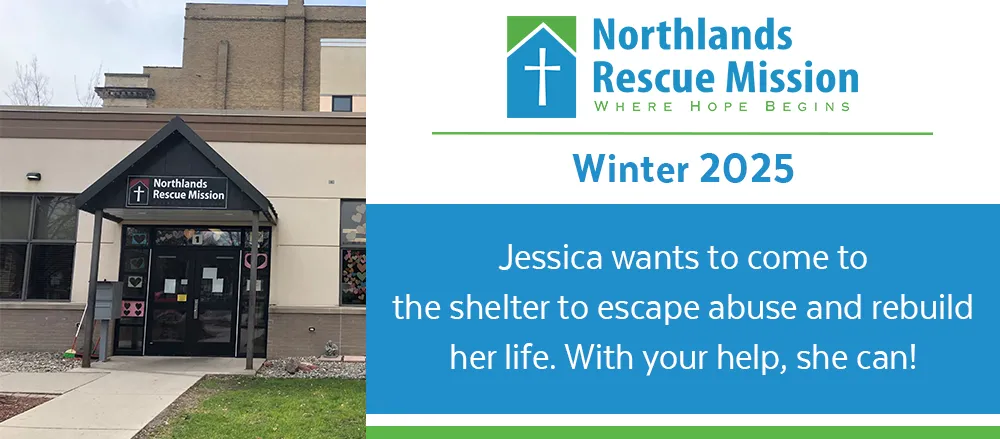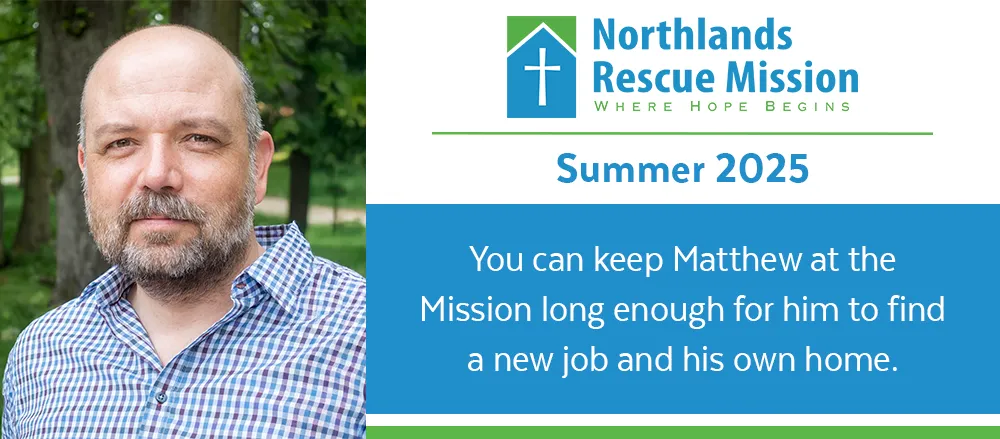Your support Gives Charles
Safety, Hope, and a Path to Housing.
When I got the message from Jessica, I knew I had to ask someone like you for help.
“I am trying to leave an emotionally and verbally abusive relationship,” she said. “Is there room for me?”
This could be one of the most important decisions Jessica ever makes. She wants to come to the shelter to escape abuse and rebuild her life. With your help, she can!
Your gift of $50 will give Jessica her first four nights in the shelter.
Those first few nights are one of the greatest gifts you can give to Jessica. Why? Because that is the period when her entire mindset will start to change. Once she realizes she is safe – that she has new opportunities and people to support her – Jessica’s feelings of fear and apprehension will gradually be replaced by feelings of security and hope.
Jessica is coming from a small town of less than 1000 people. Her partner has closed her off from friends and family. She has almost no control. But you can change that, starting right now.
Will you donate today to give Jessica the safety and support she needs?
When Jessica gets to the Mission, she’ll be starting from scratch. In a situation like that, this is one of the best places for her to be:
- Jessica has no ID or social security card, but we can help with that! Our case managers know exactly where to get the right paperwork. They’ll make sure it’s submitted correctly so that Jessica gets her documents as soon as possible.
- Jessica wants to work, but she isn’t sure where to start. We’ll help her look for job opportunities that fit her skills and goals. Then, we’ll help her fill out applications!
- Jessica’s biggest worry is where she will live once she’s back on her feet. We know how to find housing options that fit Jessica’s income and qualifications. The paperwork might be intimidating to Jessica on her own. With help from her case manager, it will be a breeze!
Friends,
Before I accepted the role as the Interim Director at Northlands Rescue Mission, I was privileged to be the lead case manager here. For more than 10 years, I’ve worked closely with clients to help them set goals, overcome personal challenges, and ultimately rebuild their lives. I know that a warm bed, a hot meal, and a person saying “I believe in you” can change everything for someone like Jessica.
There were moments, as a case manager, when I could almost see a light come on behind a person’s eyes. They are moments of realization – when someone like Jessica starts thinking, “I might actually be able to change things for myself.”
If you can get Jessica into the Mission, I know we can help her reach that moment.
I believe, too, that this is a chance to show our faith in action. God calls on us to help people in crisis. “Carry each other’s burdens, and in this way you will fulfill the law of Christ.” [Galatians 6:2]
By sending Jessica to us, God is giving us an opportunity not just to restore a life, but also to fulfill His law as a faithful servant of God.
And this opportunity extends far beyond Jessica. Each week, at least ten people like her will come to the Mission seeking shelter, support, and HOPE for the future.
If that seems like a lot of people to you, you are right. This past year, the Mission sheltered 537 individuals, 57 more people than the previous year. It seems this trend is going to continue. That is to say, you are needed now more than ever.
Please join your friends and neighbors who are faithfully and compassionately supporting people like Jessica. Make your gift today so that Jessica has a safe place to be tomorrow.
God Bless,
Elaina Wickman
Interim Director
Northlands Rescue Mission
P.S. This week, many people just like Jessica will seek refuge at the Mission. Your gift today ensures the doors are open and that they are welcomed with the love of Christ.
“Carry each other's burdens, and in this way you will fulfill the law of Christ.”
- Galatians 6:2
Does your employer offer a matching gift program? Your donation may be worth double! Contact your employer to see if your donation qualifies for a matching gift, or
click here for more information.







